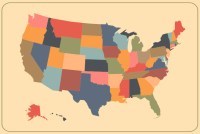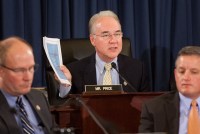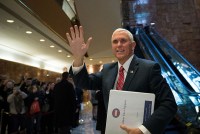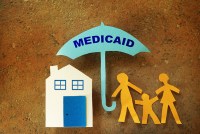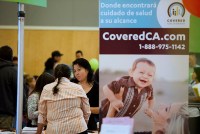Latest Morning Briefing Stories
Medicaid Coverage For Addiction Treatment Varies Dramatically
States can set their own rules about these benefits for Medicaid enrollees and a study shows wide disparities. But researchers say a repeal of the health law’s expansion could derail progress.
Helping Ex-Inmates Stay Out Of The ER Brings Multiple Benefits
Each year, millions of Americans leave jail and prison. When they do, they’re likely to have a hard time managing their health. Some clinics are trying to provide ex-inmates with better, cheaper care.
Medicaid Is Balm And Benefit For Victims Of Gun Violence
Young men injured by gunshot wounds often lacked insurance and went for years without proper follow-up care. The health law’s Medicaid expansion, in doubt since the election, changed that in many of the states with the most gun violence.
Tighter Prescribing Rules: An Anti-Abuse Strategy That Could Hurt Patients In Pain
Responding to a national epidemic, many state Medicaid programs are making the coverage rules for these opioid-based medicines tougher so that physicians will think twice before prescribing them. But some worry that legitimate pain patients could suffer.
Trump’s Pick To Run Medicare And Medicaid Has Red State Policy Chops
Seema Verma is a consultant who was Vice President-elect Mike Pence’s health policy advisor when he was governor of Indiana, playing a key role in Medicaid expansion in that state.
Price’s Appointment Boosts GOP Plans To Overhaul Medicare And Medicaid
Privatizing the Medicare program for the elderly and disabled and turning the Medicaid program for the poor back to the states are long-time goals for Republicans in Congress and the White House.
Lo que podría hacer Mike Pence con el Medicaid
El gobernador de Indiana, Mike Pence, fue uno de los 10 gobernadores republicanos que expandió el Medicaid bajo el Obamacare, pero como compañero de fórmula del ahora presidente electo Donald Trump, está pidiendo la derogación y reemplazo de la ley.
Pence Expanded Health Coverage As Governor, Now Threatens To Take It Away
Indiana’s Obamacare Medicaid expansion — with a conservative twist — may offer lessons for Republicans’ “repeal and replace” promise.
To Get Disability Help In Kansas, Thousands Face A 7-Year Medicaid Waitlist
Nick Fugate has a cognitive disability but held a job and was independent for years. Then he lost his dishwashing job and learned there are long delays getting help he needs from Medicaid in Kansas.
In Depressed Rural Kentucky, Worries Grow Over Medicaid
Low-income residents in poverty-stricken Clay County worry what will happen to their health care if Gov. Matt Bevin’s ambitions to overhaul the state’s Medicaid program go forward.
Millones podrían perder el Medicaid bajo el plan de Trump
El mayor riesgo para los beneficiarios del Medicaid proviene de las promesas del presidente electo Donald Trump, y otros republicanos, de revocar la Ley de Cuidado de Salud Asequible (ACA).
Concerned About Losing Your Marketplace Plan? ACA Repeal May Take Awhile
Republican efforts to get rid of the federal health law are expected to take some time to work through Congress and leaders have promised to give consumers time to adjust to those changes.
Millions Could Lose Medicaid Coverage Under Trump Plan
But block grants face likely resistance from states, poised to lose many millions.
California Faces Major Reversal If Trump, Congress Scrap Health Law
Uninsured Californians could more than double to 7.5 million if Affordable Care Act is repealed.
California se enfrenta a un revés importante si Trump revoca la ley de salud
California tiene mucho que perder si el presidente electo Donald Trump y el Congreso liderado por republicanos cumplen con su promesa de campaña de revocar el Obamacare.
Uninsured In Coal Country: Desperate Americans Still Turn To Volunteer Clinics
Dire dental needs and other health problems keep Remote Area Medical’s pop-up free clinics busy in states like Virginia that haven’t expanded Medicaid.
Seniors Suffer Amid Widespread Fraud By Medicaid Caretakers
A government watchdog report finds widespread fraud — in some cases involving patients’ severe neglect and death — in a Medicaid program that sends non-medical assistants to elderly and disabled peoples’ homes.
Long-Term, Reversible Contraception Gains Traction With Young Women
Implants and intrauterine devices are endorsed by pediatricians, OB-GYNs and health officials as a way to help girls and women space their pregnancies and reduce the risk of having a premature baby.
To Curb Unintended Pregnancy, States Turn To IUDs — In The Delivery Room
States are contemplating whether access to IUD through post-delivery procedures could be an important step in curbing unintended pregnancies.
Emergency Room Use Stayed High In Oregon Medicaid Study
A new study on Oregon’s famed Medicaid experiment eight years ago shows no decline in emergency room care even after two years of coverage.



